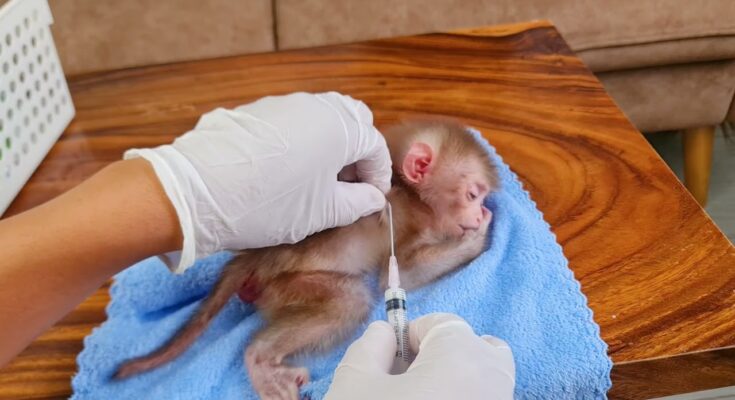
When a baby monkey doesn’t want to drink milk, it’s essential to approach the situation with care and patience. First, observe the monkey for any signs of illness or discomfort, such as lethargy, changes in behavior, or visible injuries. If you suspect any health issues, consult a veterinarian immediately.
Creating a calm and secure environment can also help. Baby monkeys are sensitive to stress, so ensure they feel safe and comfortable. Keep the surroundings quiet and free from disturbances. Holding the baby monkey gently and speaking to it in soothing tones can make a significant difference.
Experimenting with different feeding techniques might also be necessary. Try using a different type of bottle or nipple, as sometimes the baby monkey might not like the current one. Warming the milk slightly can make it more appealing, mimicking the natural warmth of their mother’s milk. Ensure that the milk is at a safe temperature before offering it.
In some cases, it may be helpful to introduce the baby monkey to a surrogate mother or another monkey who is feeding well. Monkeys learn through imitation, and seeing another monkey drinking milk might encourage them to do the same.
If the baby monkey continues to refuse milk, try offering other nutritious fluids or soft foods suitable for their age and development. Always consult with a veterinarian or a primate specialist to ensure the baby monkey receives the proper nutrition and care during this critical period. Patience, gentle care, and professional guidance are key to helping a baby monkey thrive.


